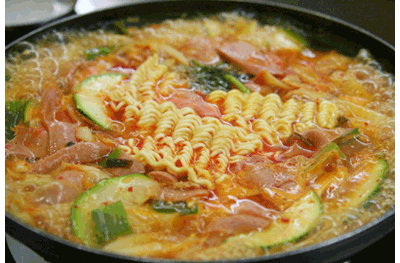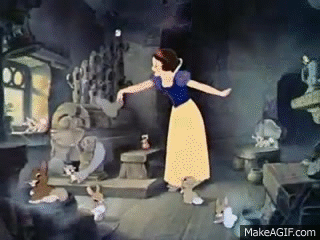I Made These 3 Lifestyle Changes for My Skin — & It Was the Best Decision Ever
You’re wearing sunscreen, you’re hydrating, you even visit an esthetician regularly. But what if your lifestyle is undermining all your efforts? What if your skin could reach its max potential with just a few lifestyle changes? Jude Chao shares the three best lifestyle changes she made for her skin — and why she’s never looked back.
Skincare is great. The right ingredients in the right formulations can produce real, visible improvements in skin. But amid all our patting and slathering, it can be easy to forget that our skin is an organ, a part of the whole of our bodies, affected by what we choose to put in our bodies and what we choose to do with our bodies. That means that our lifestyles can affect our skin as well.
Like skincare, lifestyle changes are very YMMV. Some people find that cutting sugar reduces their acne, while others can eat a candy bar a day their entire life without suffering a single spot. Personally, I’ve found these three changes particularly helpful for my skin.

1. Reducing sodium intake
I used to think I was just genetically doomed to puffy eyelids and bouts of facial bloat. Water retention changes my entire eye shape and eyelid configuration, and when my eyes are extra puffy, makeup is a challenge and my lash extensions don’t sit quite right. I sometimes get puffy bags under my eyes, too. Facial massage and roller tools can help reduce facial bloat, but those are a pain in the ass and the last thing I want to deal with in the mornings, which are the times when the bloat hits hardest.
I discovered the source of my problem accidentally. For the past year or so, I’ve been eating more healthily in general, and that involves eating fewer packets of instant ramen and other ultra-salty foods. As I cut back on my sodium intake, I realized I was having fewer and fewer puffy mornings. Whenever I decided to splurge on something salty, I’d wake up the next day right back to my former puffy self.

Excessive sodium consumption may cause water retention, and in my case, it was all showing up on my face. I eat a lot less salt now, and I’m happy with the results.
2. Cleaning the house more
My eye area problems aren’t confined to salt-induced puffiness. Sometime during early adulthood, I apparently developed some super fun dust allergies, which I didn’t recognize at the time as dust allergies. As I’m learning while writing this article, I had a habit of just accepting the unfortunate things that happen to my body instead of looking into what’s causing them.

These super fun dust allergies would make my eyes itch. This would make me rub them violently to make the itching stop. The extra irritation would make them swell, and all the excessive rubbing and tugging and pulling on the skin led to an increase in visible fine lines. I don’t take allergy medication much, because the kinds that work put me to sleep, while the kinds that won’t put me to sleep don’t work, so I just suffered. For years.
As part of the lifestyle improvement I embarked upon last year, I resolved to clean more. My periodic depressive episodes can make that a challenge, but running a microfiber cloth over surfaces to pick up dust is a quick, easy, and low-effort task. I’ve found that since I started doing that regularly to minimize the amount of dust around me, my eyes have felt much better. No more itching, no more rubbing, and no more damaging the delicate skin in that area.

I still don’t like cleaning very much, but knowing I can prevent eye area skin troubles by dusting before the dust gets visible helps make the chore a little more bearable.
3. Quitting smoking
Compared to the other two items on my list, this lifestyle change was not only the most major, but the earliest one I made (I haven’t smoked for about seven years now!) and the most intentional. I cut sodium and found that it helped my facial bloat; I started cleaning more and found that it eliminated my need to constantly rub my eyes. But when it came to quitting smoking, I did it 90% to save my skin.
Smoking drastically accelerates and exacerbates the visible aging process. Blood vessel constriction deprives skin of oxygen, nutrients, and moisture, leading to poorer skin function, renewal, and texture as well as an overall duller appearance. (I’ve talked before about how dead my skin looked after years of smoking). Smoking degrades collagen and elastin, leading to sagging and wrinkling. Smokers’ lines around the mouth are notorious. Dying early is also bad for skin.
By the time I quit smoking, I felt my skin was already in rough shape, and I wasn’t sure whether it could recover. My complexion was coarser, duller, and less elastic than I’d expected it to be in my early 30s.

What I’ve found in the years since then is that with care and protection, it absolutely can — in fact, I’m pretty sure my skin is firmer, brighter, and more resilient now, at 39, than it was at 32. A lot of the credit for that goes to great skincare products that I’ve chosen for their appropriateness for my skin, but ultimately, no amount of product would work as well if I were still doing constant damage to my skin. Topical treatments simply can’t keep up with the deep and systemic damage that smoking does.
(Not to mention that I don’t want to die early.)
As you may have noticed, the common thread in the three lifestyle changes I’ve talked about here is that they all benefit the entire body, not just the skin. When we’re younger and our bodies are functioning at their peak and with plenty of energy in the reserves, it’s easy to think that the impact of lifestyle choices on appearance is negligible. With time, however, it becomes clearer and clearer that our overall health does affect our skin. I had a bad habit of not listening to my body or taking care of my health. The more I work to correct that habit, the more I see its benefits for my complexion as well.

What does that mean for you? Even if you’re not a smoker, and you keep your house perfectly clean and dust-free already (or aren’t sensitive to dust), and you never overdo it with the Shin Black Ramyun and processed cheese, you may be able to identify other lifestyle factors that affect your skin. Sleep hygiene, diet, drinking, and activity levels may all make a difference.
Have you made any lifestyle changes that improved your skin? We’d love to hear your story in the comments!
Loading...